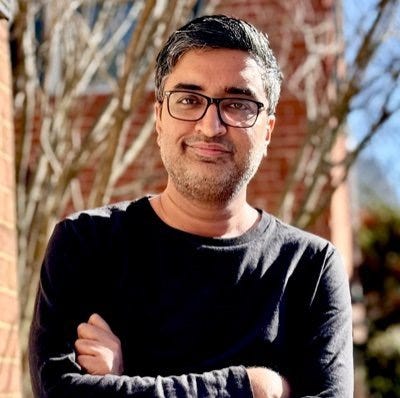Hello friends,
Have you signed up for my other newsletter, Dhyandemic yet? It’s a source of reflective thoughts to expand your collection of thoughtful reads.
Today, I want to share an extraordinary story about how small, consistent acts can change the world in ways we might never imagine.
James Harrison never met the millions of babies he helped protect.
But his blood changed the course of maternal healthcare. The Australian railway clerk, who died last month at age 88, had something extraordinary in his plasma.
An accidental gift that became a medical breakthrough.
When Harrison was 14, doctors removed one of his lungs. The surgery required 13 units of blood from strangers. He never forgot their generosity.
"I was always looking forward to donating because I don't know how many people it took to save my life," he later said.
True to his word, he began donating blood at 18. He kept going for more than 60 years.
In the end, he gave blood 1,172 times.
In 1966, scientists made a surprising discovery. Harrison’s blood contained high levels of anti-D antibodies. They believe he developed them after receiving Rh-positive blood transfusions during his lung surgery. No one can say for sure. But this lucky twist of biology became a game-changer.
Some pregnancies are a hidden battleground. When a woman with Rh-negative blood carries an Rh-positive baby, her immune system can go on the attack. If it recognizes the baby’s red blood cells as foreign, it starts making antibodies to destroy them. That response can be deadly in future pregnancies, leading to hemolytic disease of the newborn (HDN).
Before the 1960s, HDN was a nightmare. One in two affected babies didn’t survive.
Then came a breakthrough. Scientists created Anti-D immunoglobulin, a treatment made from plasma like Harrison’s. It stops a mother’s immune system from producing those harmful antibodies. His blood helped produce doses that protected millions of pregnancies around the world.
In India, Rh-negative blood is uncommon. About 5-10% of people have it, compared to 15% in Europe. With 24 million births each year, up to half a million pregnancies are at risk of Rh incompatibility.
But there’s a problem. Anti-D immunoglobulin is hard to access, especially in rural areas. More local donors with anti-D antibodies could change that.
O-negative blood donors like me (yes, I am an oddity, in more ways than one) are universal donors in emergencies. But we don’t naturally produce anti-D antibodies unless we’ve been exposed to Rh-positive blood.
That made people like Harrison rare. And incredibly valuable.
And Harrison’s own family benefited from his kindness.
His daughter, Tracey Mellowship, and two grandchildren received the Anti-D treatment he helped create. "He was very proud to have saved so many lives, without any cost or pain," she said. "It made him happy to hear about the many families like ours, who existed because of his kindness."
But Harrison never saw himself as a hero.
"I’m in a safe room, donating blood. They give me a cup of coffee and something to nibble on. And then I just go on my way. No problem, no hardship," he once said.
His impact lives on. Scientists at Australia’s Walter and Eliza Hall Institute are working on a project called “James in a Jar” to develop synthetic versions of his life-saving antibodies. These treatments could help mothers worldwide, especially in countries where access remains limited.
Harrison’s story is proof that small acts of generosity can have an enormous impact.
Sometimes, all it takes is showing up.
"I hope it’s a record that somebody breaks," he once said… The world could do with more people like James Harrison.
Go well, kind man!






Read his obituary in the FT. In awe.
Kid sister's O-. Her husband is Rh+. I remember reading about potential complications because of that, but hadn't delved much into its background. Her son is O- as well.